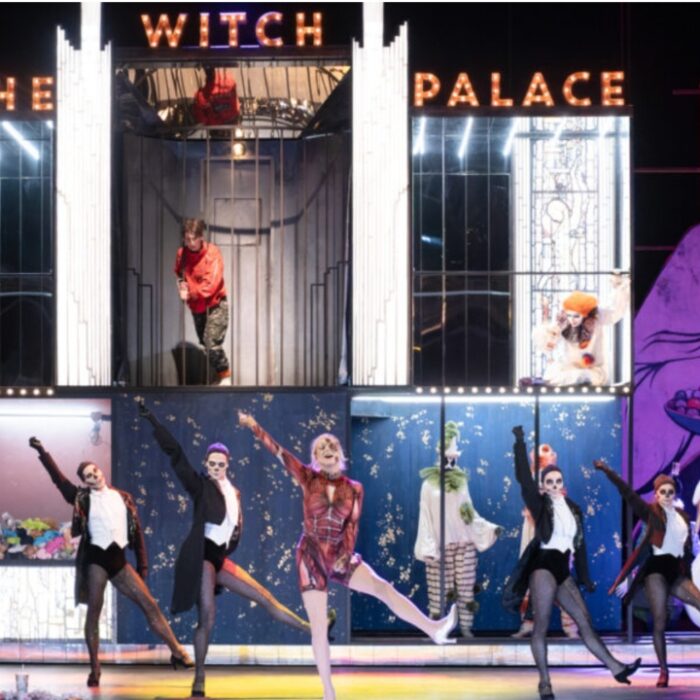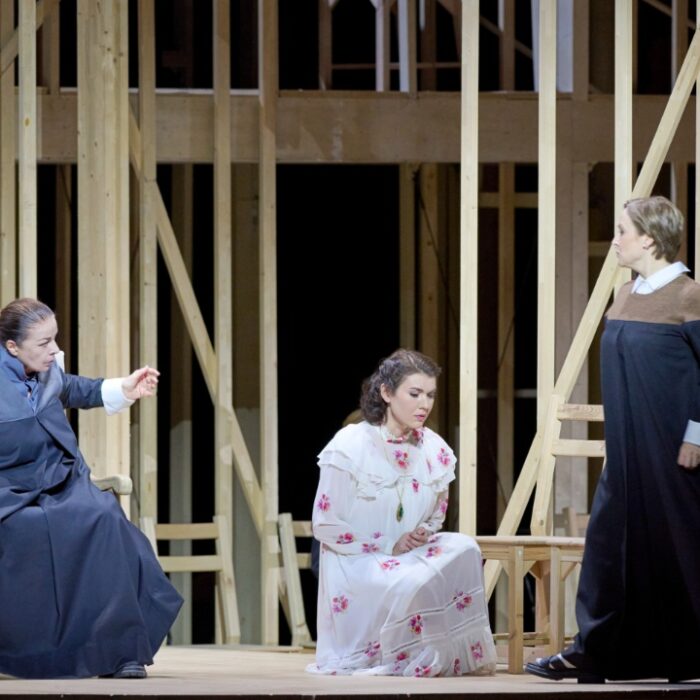
CD Review: Angela Gheorghiu’s ‘A te, Puccini’
By Bob Dieschburg“A te, Puccini.” – The title to Angela Gheorghiu’s latest release has all the ring of a bitter-sweet tribute, a melancholy love declaration right in time for the centenary of the composer’s death in 1924. The program is not your usual Puccini; instead, it is a compilation of 17 songs, including one world-premiere (“Melanconia!”), written mostly for informal purposes like moving to a different house (“Casa mia, casa mia”) or as a graduation exercise for school in Milan (“Mentia l’avviso”). They even serve as the somewhat unpolished testing grounds for melodies which would later be recycled in full-scale operas, notably “La Bohème” (“Sole e amore”), “Gianni Schicchi” (“Canto d’anime”), and “La Rondine” (“Sogno d’or”).
In short, the songs do not easily fit existing categorization. It would be quite unfair to judge them by any preconceived standards of the Lied repertoire, let alone dismiss them as quasi-operatic curiosities, if not appetizers. Angela Gheorghiu chooses her own path, and at 58, stands to balance tonal beauty with the power of interpretation.
“The Unknown Puccini”
The songs were comprehensively reproduced in “The Unknown Puccini,” Michael Kaye’s landmark publication from 1987. It provided the editorial basis for Plácido Domingo’s homonymous recital on CBS Masterworks and, in 2017, for an equally delightful Naxos release with soprano Krassimira Stoyanova.
Yet neither are quite comparable to the solemnity of Angela Gheorghiu’s interpretation. The latter is less operatic than Stoyanova but more dramatically inclined than Domingo. Most characteristically, she appears to embrace the cosmetic flaws of her slightly worn instrument, including an unreliably wavering pitch and the occasional sharpness of tone. In the triumphant “Inno a Roma,” for instance, the interpretation’s ongoing forte is unwieldy at best, and the fluidity of Gheorghiu’s phrasing is hampered by the strenuousness of the physical demands.
Conversely, she stays in technical control over the flourishes and dynamic variations. Her unfailingly honeyed mezza voce makes up for any physiological shortcomings otherwise. For example, the bitterly Romantic “Mentia l’avviso” resonates with unending tenderness, despite the moderately noticeable strain of the scena’s climactic middle part.
Similarly, the pathos-laden “Salve Regina” gives the singer ample opportunity to showcase a rendition of deeply felt spirituality. Gheorghiu finds a slightly toned-down expression which conveniently blends out the piece’s rather naive affiliation with the operatic output of the Giovane Scuola (it will eventually be integrated into the Preghiera of “Le Villi”).
Farewell?
Her artistic integrity makes it justifiably hard to fault Angela Gheorghiu for the waning capabilities of a voice among the most gracefully gifted in past decades; after all, it had made the ever so distinguished Georg Solti cry! Much of this ability to move still seems in place and with some benevolence, one might designate the vocal wear as a superficial patina to her innately appealing tone.
But even an optimist, when pressed, would have to concede that “A te, Puccini” is not just an aleatory homage to one of opera’s all-time greats. It closes with the recently rediscovered “Melanconia!” from where there is no going back to the youthfulness of Mimi, Tosca, and Butterfly. Consequently, Angela Gheorghiu has moved on; not a swan song, but a farewell perhaps, hers is the most significant contribution to the Puccini year yet.


